第12章 Letter IX(1)
But perhaps there is a vicious circle in our previous reasoning?Theoretical culture must it seems bring along with it practical culture,and yet the latter must be the condition of the former.All improvement in the political sphere must proceed from the ennobling of the character.But,subject to the influence of a social constitution still barbarous,how can character become ennobled?It would then be necessary to seek for this end an instrument that the state does not furnish,and to open sources that would have preserved themselves pure in the midst of political corruption.
I have now reached the point to which all the considerations tended that have engaged me up to the present time.This instrument is the art of the beautiful;these sources are open to us in its immortal models.
Art,like science,is emancipated from all that is positive,and all that is humanly conventional;both are completely independent of the arbitrary will of men.The political legislator may place their empire under an interdict,but he cannot reign there.He can proscribe the friend of truth,but truth subsists;he can degrade the artist,but he cannot change art.No doubt,nothing is more common than to see science and art bend before the spirit of the age,and creative taste receive its law from critical taste.When the character becomes stiff and hardens itself,we see science severely keeping her limits,and art subject to the harsh restraint of rules;when the character is relaxed and softened,science endeavours to please and art to rejoice.For whole ages philosophers as well as artists show themselves occupied in letting down truth and beauty to the depths of vulgar humanity.
They themselves are swallowed up in it;but,thanks to their essential vigour and indestructible life,the true and the beautiful make a victorious fight,and issue triumphant from the abyss.
No doubt the artist is the child of his time,but unhappy for him if he is its disciple or even its favourite.Let a beneficent deity carry off in good time the suckling from the breast of its mother,let it nourish him on the milk of a better age,and suffer him to grow up and arrive at virility under the distant sky of Greece.When he has attained manhood,let him come back,presenting a face strange to his own age;let him come,not to delight it with his apparition,but rather to purify it,terrible as the son of Agamemnon.He will,indeed,receive his matter from the present time,but he will borrow the form from a nobler time and even beyond all time,from the essential,absolute,immutable unity.There,issuing from the pure ether of its heavenly nature,flows the source of all beauty,which was never tainted by the corruption of generations or of ages,which roll along far beneath it in dark eddies.Its matter may be dishonoured as well as ennobled by fancy,but the ever chaste form escapes from the caprices of imagination.The Roman had already bent his knee for long years to the divinity of the emperors,and yet the statues of the gods stood erect;the temples retained their sanctity for the eye long after the gods had become a theme for mockery,and the noble architecture of the palaces that shielded the infamies of Nero and of Commodus were a protest against them.Humanity has lost its dignity,but art has saved it,and preserves it in marbles full of meaning;truth continues to live in illusion,and the copy will serve to reestablish the model.If the nobility of art has survived the nobility of nature,it also goes before it like an inspiring genius,forming and awakening minds.Before truth causes her triumphant light to penetrate into the depth of the heart,poetry intercepts her rays,and the summits of humanity shine in a bright light,while a dark and humid night still hangs over the vatleys.